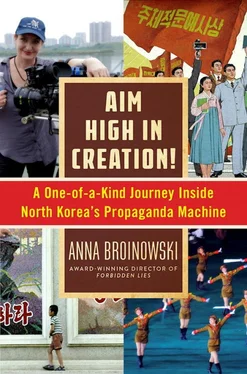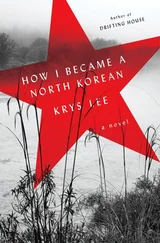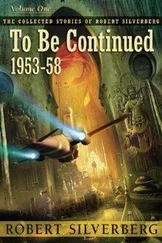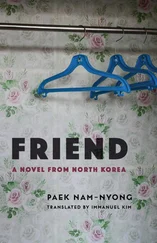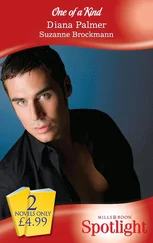The way Chung tells it, their escape unfolded like a Hollywood thriller: “On March 13, with the help of a Japanese reporter, they ran from their minders and jumped in a taxi. On their way to the American embassy, they were pursued by North Korean agents, who radioed taxis all over the city to find out if an Asian man and woman were on board. The Japanese reporter paid the cabby to lie and say he was going in the opposite direction. Shin and Choi slightly passed the front gate of the embassy to distract their pursuers. Then they ran in. They said it was like a slow-motion movie, the gate seemed so far away. Shin ran in first and Choi followed.”
Once free, Shin and Choi went their separate ways—Shin to make the popular 3 Ninjas movies in LA under his new alias, Simon Sheen, and Choi back to Seoul, where she wrote a book about her time with Kim Jong Il. Many times on the streets of Seoul, Chung has seen North Korean defectors approach Choi, in tears, thanking her for her work in Salt .
I wish I could meet this indomitable woman in person. But she is hidden away from me, along with the movies she made with Shin. The South Korean government considers them too sympathetic to North Korea to be screened. If Chung released them, he would be jailed. As a result, Salt, A Secret Envoy of No Return, Love, Love, My Love, A Chronicle of Escape, and fifteen other brilliant films are rotting in metal canisters on both sides of the DMZ.
The propaganda cuts both ways: South Koreans are banned from seeing Shin and Choi’s movies, and the North Koreans have been told to forget they exist.
COASTING TOWARDS KYUSHU IN CATTLE CLASS, I study the satellite map on TV. The lights of South Korea glitter brightly against a jet-black sea. To the north and west, China and Japan are lit up like funfairs. Looking closer, I realise the black void between them is not the sea: it’s North Korea. I feel a rush of anger at the goose chase I’ve been led on by this stubborn country: a place so paranoid, it doesn’t even turn its lights on at night. Then I remember the crippling poverty. At least North Korea, by default, is doing something to reduce global warming.
I have three precious days in Japan, my last chance to meet someone who actually worked with Kim Jong Il. Kenji Fujimoto, who was the Dear Leader’s sushi chef before he flew to Okinawa to get abalone and never came back, watched many movies with Kim in his Pyongyang palace. Charles Robert Jenkins, one of the four American GIs who defected to North Korea in the 1960s and played Yankee bad guys for Kim Jong Il, now lives on Sado Island with a Japanese wife. And Kenpachiro Satsuma, the actor who wore the monster suit in Kim’s Godzilla rip-off, Pulgasari , tends a community garden in Tokyo. I have contact numbers for all of them. South Korea and the US have just started their annual military training exercises, and North Korea is threatening a full-scale nuclear attack. Things are tense in Japan, but I am still optimistic they’ll talk.
First, however, I need to meet an ex–grave digger from Leipzig. Johannes Schönherr belongs to a small but devoted club of North Korean cinema fans on the Internet. They exchange information via anonymous posts, downloading North Korean DVDs smuggled in from China and streaming them to each other from all corners of the globe. Johannes defected to Bonn in 1983 and forged a colourful career distributing underground films. At first, he tracked the violent offerings of Eurotrash filmmakers like Ruggero Deodato, the maker of Cannibal Holocaust . Then he toured Japanese cyberpunk movies around Europe and screened the works of Cinema of Transgression pioneers Nick Zedd and Richard Kern at underground clubs in Nuremberg. These events were often shut down by outraged German feminists—which made Johannes proud. His hunger to uncover films the world wanted to censor eventually led him to North Korea. As he says between drags on his ever-present cigarette: “You can’t get more underground than that.”
Fittingly, Johannes lives in Beppu—a hot-spring town the Japanese like to say sprang from the gaseous bowels of hell. Roughly 950 kilometres to the north, Fukushima’s shattered nuclear reactors are belching their toxic waste into the Pacific—but the denizens of Beppu, in their yukata and wooden clogs, clip-clop from bathhouse to dumpling shop as if they’re living two hundred years ago. They might as well be: Beppu is the real-world version of the spirit world in Hayao Miyazaki’s animated fantasy Spirited Away —a steampunk wonderland of eighteenth-century brass pipes and bubbling, acid-green canals. I stand on the stone steps of my ryokan , waiting for Johannes. Along the cobblestones, fluffy cats snooze on air ducts, warmed by sulphurous blasts from deep underground. An old lady with a wart on her chin totters past under a paper parasol, clutching a bag of mandarins. The steam thickens and swirls over the jigsaw of tiled roofs, and emerging from it, like a ghoul from hell, is Johannes.
He’s a hulking black figure with waist-length hair, a carefully wrapped sack dangling from his bony fingers. His glasses have fogged up in the steam. He blinks at me shyly, clearly more comfortable in front of the blue glare of a video screen: “Would you like some noodles?” I follow Johannes into a little wooden bar and we wolf down piping-hot bowls of silky ramen, spiked with shiitake mushrooms and ginger. Then Johannes gently spreads his North Korean treasures on the tatami-mat floor of my room.
Kim Jong Il’s DVDs, books, and movie posters gleam on the mat like precious artefacts, painstakingly collected during Johannes’s 1999 trip to Pyongyang. He was invited there by a North Korean embassy contact in Bonn for whom he used to dub Western films so they could be sent in the diplomatic bag to Kim Jong Il. Johannes spent his time as a guest of the Pyongyang International Film Festival (there really is such a thing), chatting up Korfilm, the state-owned distributor. He left with a handful of North Korean movies, which he toured around Europe. Then he slammed their mind-numbing propaganda in a 2002 book, Trashfilm Roadshows , and North Korea labelled him an “imperialist spy.” He has never been invited back.
Johannes has written an impressive book, North Korean Cinema: A History . But his intimate knowledge of North Korean filmmaking stops around the time of A Schoolgirl’s Diary , which was script-edited by Kim Jong Il in 2006. Another six years’ worth of films have since been made, about which hardly anything is known. Johannes’s collection of bootlegged North Korean movies confirms what I suspected—Kim not only borrowed from Hollywood blockbusters, he reproduced them: Souls Protest is the North Korean Titanic , Hong Kil Dong is its Karate Kid , and Unsung Heroes is a Juche-style James Bond. And while North Korean movies may be an acquired taste, a few are truly exquisite.
On Johannes’s small TV, I watch the 1971 melodrama The Flower Girl , which has been transferred from celluloid to DigiBeta to DVD. The dubbing process has made it jittery, its pixels as big as sugar cubes. But the power of the story shines through.
Kotpun is a young Korean girl living under Japanese rule in the early twentieth century. Her mother, beaten mercilessly by their evil Japanese landlord, is dying. To pay for her medicine, Kotpun sells flowers in the marketplace to drunk Japanese and their scornful Korean prostitutes. They spit at her, but Kotpun is proud: when her little sister attempts to sing for money, she stops her. They’re not beggars but noble daughters of Korea. When the Japanese landlady flings boiling oil at Kotpun’s sister and blinds her, Kotpun’s life becomes hell. Her mother dies of exhaustion, and Kotpun’s sister goes mad with grief and runs away. The landlady, tormented by guilt, falls sick—and the landlord decides to murder Kotpun to get rid of the “evil demons” possessing his wife.
Читать дальше
